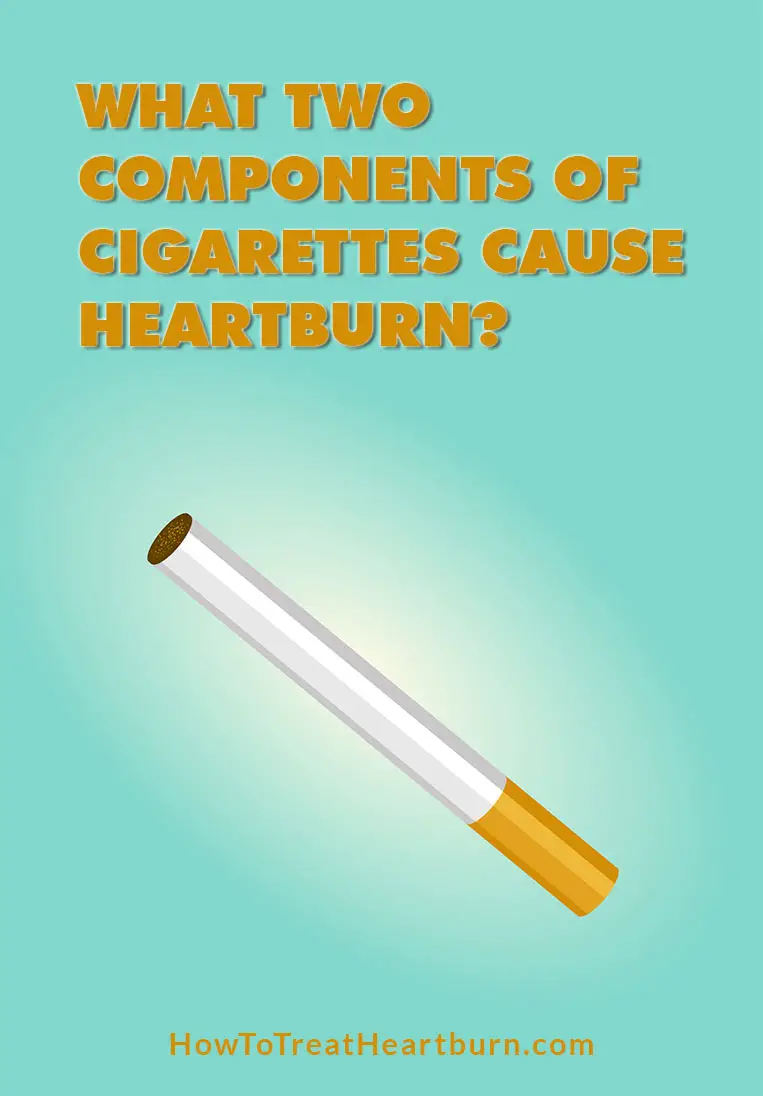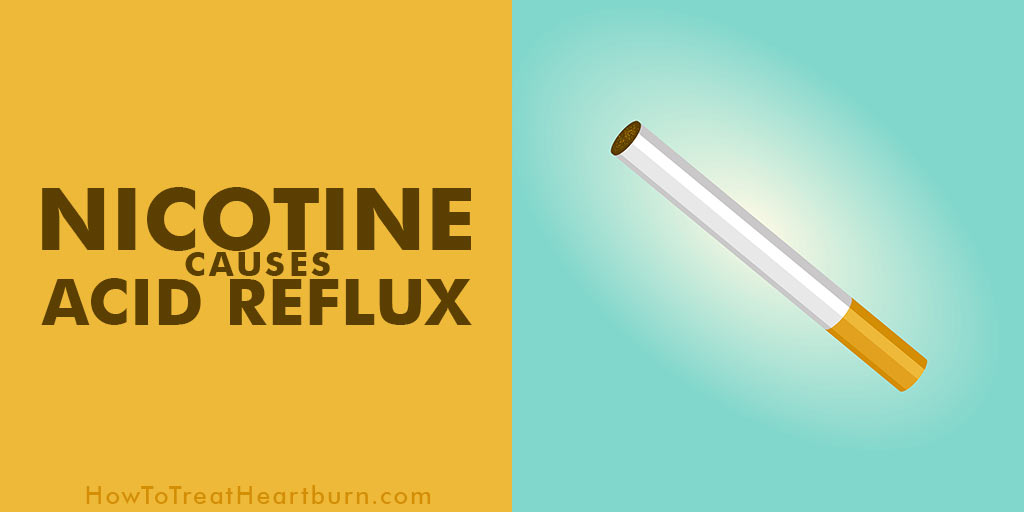Disclosure: I am compensated for purchases made through some links on this site. Click for details.
Nicotine Increases Risk of Acid Reflux, Heartburn, and GERD
Nicotine in any form can lead to heartburn. This includes smoking tobacco, chewing tobacco, nicotine gum, and patches. For those suffering from acid reflux, heartburn, and gastroesophageal reflux disease (GERD) your issues will be exacerbated if you use nicotine products.
Here are the 8 ways tobacco use can increase the risk of heartburn:1
Related Content: E-Cigarettes and Heartburn Connection
1) Relaxation of the LES Increases Heartburn Risk
Nicotine in any form can relax the lower esophageal sphincter (LES). The LES is the valve at the base of the esophagus that closes to keep stomach contents in place. A relaxed LES allows stomach acid to leak back into the esophagus. Heartburn is the pain caused by this acid irritation of the esophageal lining.
2) Smoker’s Cough Increases Heartburn Risk
Coughing causes the diaphragm to contract, placing pressure on the stomach and its contents. This pushes food upward causing added pressure on the LES which can lead to acid refluxing into the esophagus.
3) Inflammation of the Esophagus Increases Heartburn Risk
Smoke as well as nicotine contact in the esophagus cause irritation and inflammation making the esophagus more sensitive to stomach acid that may be refluxed.
4) Damage to the Esophagus Increases Heartburn Risk
Nicotine damages the mucous membrane that helps protect the esophageal lining from stomach acid. This mucous membrane damage makes damage from acid reflux more likely.
5) Lower Saliva Production Increases Heartburn Risk
Nicotine use lowers saliva production this raising heartburn risk. Saliva has a natural antacid in it that helps alkalize stomach acid both in the stomach and what might reflux back into the esophagus. It also helps wash refluxed acids back down into the stomach.
6) Changes to Stomach Acid Increases Heartburn Risk
Nicotine increases stomach acid production. It can also cause bile salts to move from the intestine to the stomach, making stomach acids more intense.
7) Slower Digestion Increases Heartburn Risk
Nicotine causes a slowing in the digestive process. This causes more stomach acids to be produced and increased the risk of food pressure on the LES leading to acid reflux.
8) Cancer Increases Heartburn Risk
Smoking and oral use of tobacco increase the risk of esophageal cancer. Heartburn is one of the first signs of this cancer.

References
1) “Smoking and the Digestive System. Johns Hopkins Medicine, September 2013


